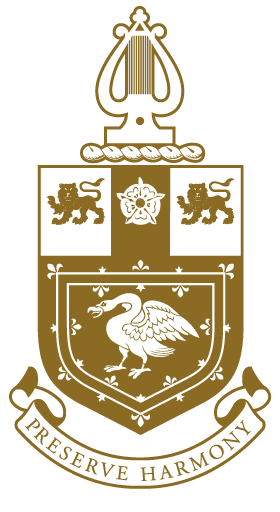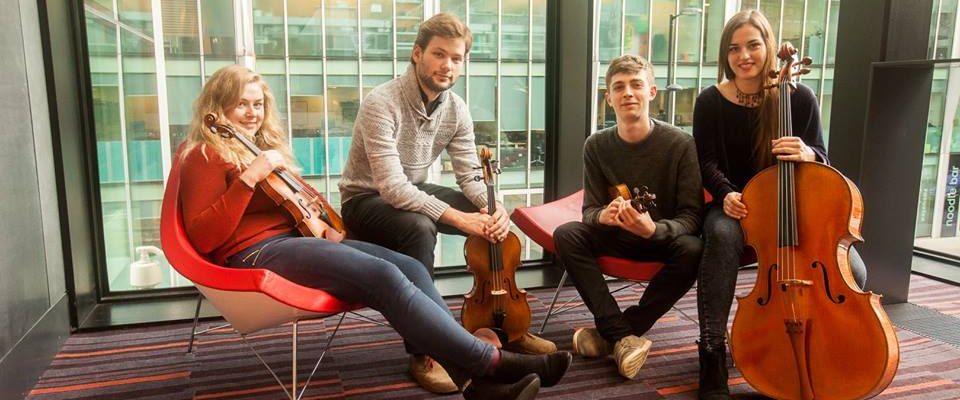Young Artist Interview: Joanna Lee
What inspired you to take up composing?
I have to confess I essentially fell into composing! It was a required component of GCSE and A Level music and at that stage, I didn’t actually realise a composing career or living composers existed (let alone young female ones)! I started to compose as per my school requirements but in the process, found the area of music I really love; I have played the piano since I was four but I much preferred creating and experimenting with new music rather than performing what already exists.
Which works are you most proud of?
I am most proud of the children’s opera I wrote for English National Opera, The Way Back Home. It was such a challenging project – composing intensively for over a year about one topic, to create 50 minutes of music that would engage both children and opera buffs, to combine my background in contemporary classical music with the more traditional arena of opera, for a work that would be placed on the stage in London and travel to other countries. It was an exhausting and pressured experience but also the most enjoyable, exciting and fulfilling one of my career thus far. I feel proud of the work the team and I created; seeing the children’s enthralled faces made the year of painstaking work worth it.
Which award has had the biggest impact on your career?
It is hard to pinpoint one as each has had a vital impact on my career. An RVW Trust award helped fund my postgraduate studies, the John Clementi Collard Fellowship was imperative in providing financial assistance so I could take the time needed to compose my children’s opera and most recently, a PRS Composers’ Fund provided funding for childcare so I could return to composing after having a baby. They have all had a big impact on my career as they have enabled me to carry on composing.
What has been your biggest composing challenge?
As previously mentioned, my children’s opera for ENO was a big challenge, mainly in terms of style, genre and audience. Combining motherhood and composing has been a challenge of juggling lifestyle and composing. Currently, I am composing a community opera, which is a challenge in terms of scale – it is for 1,000 performers of varied musical ability, age and background, to be performed outdoors on a racing track!
How do you overcome ‘composer’s block’?
Foremost, I find time away from the piece to clear and re-energise my thoughts. I live in the countryside and walking in the open air, quiet and space does wonders! With increased experience, I have found I can ‘force’ my way through the block by applying practiced approaches but routine, rather than spontaneity, takes over here and I’m never convinced that’s the right course.
How does it feel hearing your works live for the first time?
It is amazing! As a composer, you spend weeks, months, even years in isolation hearing a piece in your head or at best, on the piano. To hear it realised is amazing – I never grow tired of hearing my music brought to life by musicians; it is such a privilege and thrilling experience. There is the occasion of panic/horror when you realise what you have heard in your head isn’t right for reality but a re-write or amendments soon solve that and the thrill of live performance returns!
How would you characterise your compositional language?
This is always a difficult question to answer – I think different listeners hear different things, plus composers are often exploring new paths in their work for creative purposes or because the commission calls for it. That said, words that have frequently popped up about my work include ‘quirky, energetic, witty, playful.’ My music currently feels in a state of flux – I was creatively exhausted and at the end of a compositional chapter following the completion of my children’s opera and PhD, so I am tentatively trying new pastures.
What is your most memorable concert experience?
There are several, but concerts where I have been left stunned by the compositional achievement and originality are the most memorable, for example when I heard The Rite of Spring (Stravinsky) live for the first time, Wozzeck (Berg) and The Importance of Being Earnest (Gerald Barry). Most recently, a production of Pelléas et Mélisande (Debussy) at Aix Festival with Esa-Pekka Salonen, Katie Mitchell and Barbara Hannigan – the music, staging and performance was so subtle yet the outcome was incredibly powerful and moving. Each of these experiences has instigated a new phase of composition so I am very grateful for them.
What would be your dream composing gig?
A full-scale opera with a company like the Royal Opera House!
What next?
I will be working on the aforementioned community opera until July 2018. This is in conjunction with Surrey Arts and Brooklands Museum (a motor and aviation site), with words by Stephen Plaice and direction by Lucy Bradley. It includes 1,000 performers ranging from primary school choirs to youth orchestras, a percussion ensemble, adult community choir, special needs ensemble and professional singers, all to be performed on a racing track! It is a very exciting, if challenging, project but those two qualities are what keep me composing.
You can find out more about Joanna at www.joannalee.co.uk.





